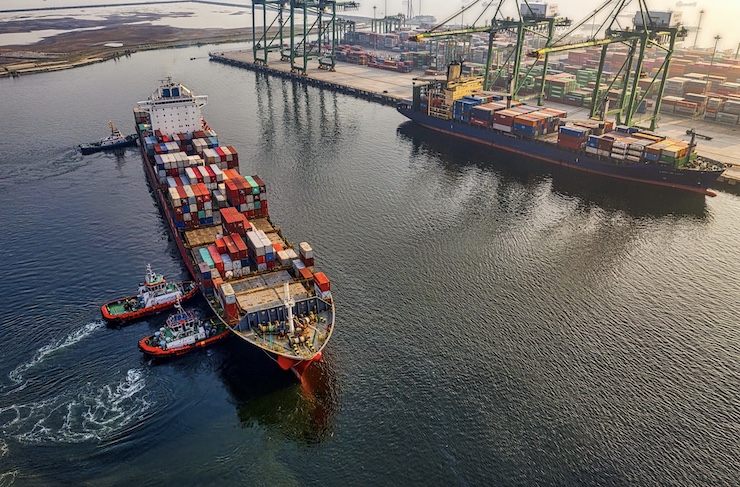
In 2020, the cargo shipping industry transported more than 10 billion tons of goods worldwide. Chinamax, a standard for measuring some of the largest cargo freight ships, was originally developed to account for cargo ships along the China-Brazil trade routes. Harbors around the world have now expanded to accommodate such large vessels. A Chinamax ship can run 1,181ft long and 213ft wide with a Dead Weight Tonnage of 4,000,000 tonnes. Saltwater erosion means that these steel welded giants can last between 25-30 years before needing to be scrapped. To prolong the life span of a cargo ship, prevent catastrophic events, and ensure smooth, safe missions, cargo ships need to have their hulls maintained regularly.
One of the most effective ways of preventing rust that can lead to breaches is to apply thick layers of paint as a sealant on ships. But paint only lasts so long before it starts to chip and peel, leaving behind rust and barnacle build up. Maintaining cargo ships falls to shipyards like Xinya Shipyard in Zhoushan, one of the largest privately owned ship repair facilities in China. Xinya Shipyard has 10 berths, 4 docks, and 3 production bases. More than 400 ships come to Xinya annually for repairs. Shipping data and intelligence provider Clarkson Research ranked Xinya as the number one refurbishment and repair shipyard in 2020.
Keeping up with volume and quality demands, Xinya recently purchased a fleet of unique drones to maintain cargo ships from Robot++. Founded in 2015 out of Shenzen, Guangdong, China, with the mission to eliminate the need for humans to complete dangerous jobs, Robot++ develops drones that can derust, clean, and inspect a ship’s hull, regardless of the surface. Using tethers and super strong magnets, the RPP-MW-SRR derusting drone crawls along vertical, curved, and inverted surfaces to deep clean the outside of a ship.
Typically, this is a process that would be done by a crew of a dozen or more workers wielding high pressure power washers. The process is time consuming, creates a lot of noise pollution, and can be dangerous. The pressure from the hoses can be so strong, that injuries are not uncommon. Another downside is that manually cleaning a ship is not environmentally friendly as the dirty water has nowhere to go but down, leeching back into waterways. Robot++’s drone is a closed system that combines “ultra-high pressure water jetting for hull and cargo hold cleaning and derusting and the vacuum recovery tray for 100% wastewater recycling,” as explained on the company website.
Currently, Robot++ has its drones only operating at Chinese shipyards. But, on May 23, 2022, Robot++ announced that they had raised $15 million in a Series B funding led by Chinese technology and online retail giant, Meituan, and the global consumer group, Fosun. Pu Xiao, Investment Manager at Fosun, said, “An aging workforce, rising labor costs, frequent aerial work-related accidents, and the COVID-19 pandemic have had an accelerative effect on the aerial work robotics sector.” This funding will allow Robot++ to bring their ship cleaning drones to more global locations, continuing to empower human workforce operations safely and efficiently with robotic drone technology.



